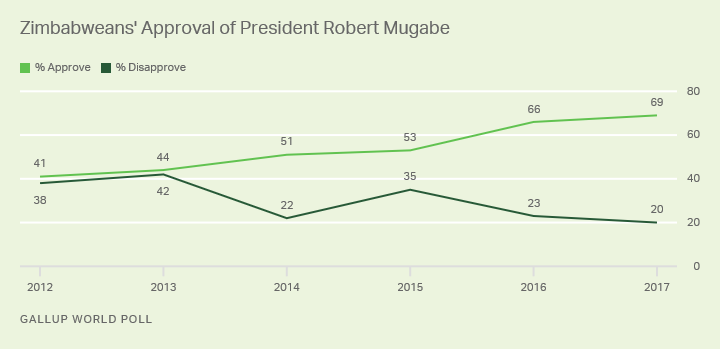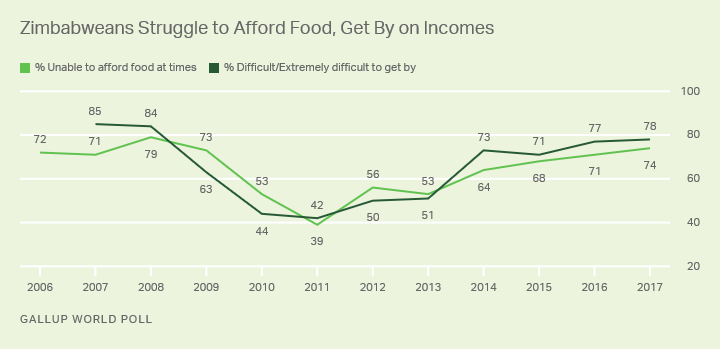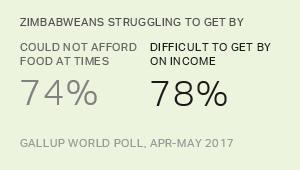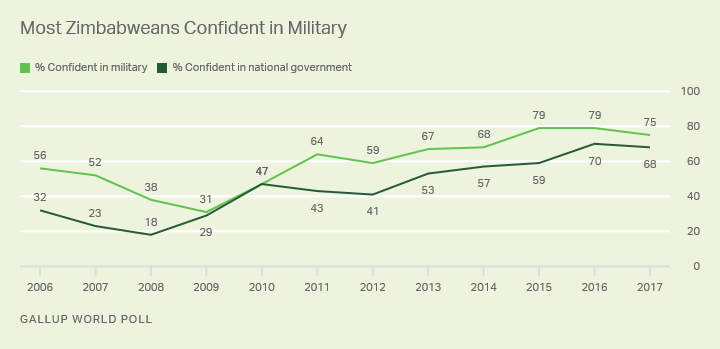Story Highlights
- 74% in Zimbabwe unable to afford food they needed
- 78% finding it difficult to get by on household income
- Zimbabweans more confident in military than national government
WASHINGTON, D.C. -- For the first time in nearly four decades, Zimbabweans are contemplating a future without President Robert Mugabe. Mugabe was popular in Zimbabwe before the military seized control this week, with approval ratings at 69% in April and May. However, a potential change in leadership could bring hope to Zimbabweans -- many of whom are finding it increasingly difficult to afford even the basics.

As of Thursday, Mugabe was reportedly in direct talks with the military about his future, but so far has refused to step down before next year's elections. The longtime leader and his wife, Grace Mugabe, have been under house arrest since Wednesday. Splits within the country's ruling party, Zanu-PF, over who should succeed Mugabe and his dismissal of Vice President Emmerson Mnangagwa prompted the current crisis.
Three in Four Struggling to Afford Food, Get By
Mugabe's successor -- regardless of who that would be -- would be tasked with rebuilding Zimbabwe's spiraling economy. Cash shortages in 2016 and 2017 left account holders unable to access funds, and companies unable to pay their workers -- stoking fears of a repeat of Zimbabwe's economic meltdown and hyperinflation nearly a decade ago. In this climate, about three in four Zimbabweans said they were unable to afford food in the past year (74%) and were finding it difficult or very difficult to get by on their household income (78%).

The last time Zimbabweans struggled this much to afford food was in 2008, when inflation hit 500 billion percent. But notably, Zimbabweans were struggling even more to afford shelter in the past two years than they were previously. A record-high one in three Zimbabweans said they had struggled to afford adequate shelter for themselves or their families in both 2016 and 2017.



